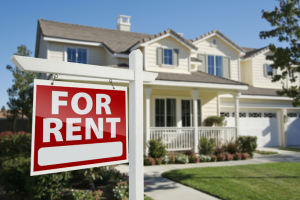Buying a home in Raleigh, NC, is one of the biggest financial decisions you’ll ever…
The Pros and Cons of Renting a Home: A Comprehensive Guide

The Pros and Cons of Renting a Home
Deciding whether to rent or purchase a home is a significant decision that impacts your lifestyle and financial future. To help you weigh your options, here’s an in-depth look at the pros and cons of renting a home. Understanding these factors can assist you in making an informed choice that aligns with your needs and goals.
Pros of Renting a Home
- Flexibility and Mobility
Renting provides unparalleled flexibility, making it ideal for those who frequently relocate due to work or personal preferences. Lease agreements typically last for a year, allowing you to reassess your living situation annually. This mobility is particularly beneficial if you’re exploring different neighborhoods or cities before committing to a permanent residence. Additionally, if you encounter changes in your personal or professional life, such as a new job or a shift in family dynamics, renting enables you to adapt quickly without the burden of selling a home.
- Lower Upfront Costs
One of the most appealing aspects of renting is the lower initial financial requirement. When you rent, you generally need to pay a security deposit and the first and last month’s rent. In contrast, buying a home involves substantial upfront costs, including a down payment (typically 3-20% of the home’s purchase price), closing costs, home inspections, and other fees. These lower upfront costs make renting more accessible, especially for those who may not have significant savings or wish to avoid depleting their resources.
- Reduced Maintenance Responsibilities
Renting relieves you of the responsibility for property maintenance and repairs. If an appliance breaks or there’s a plumbing issue, it’s the landlord or property management company’s duty to fix it. This can save you both time and money, as you won’t need to handle unexpected repairs or regular upkeep. For individuals with busy lifestyles or those who prefer not to deal with maintenance tasks, this aspect of renting can be particularly attractive.
- Access to Amenities
Many rental properties, particularly apartment complexes, offer a range of amenities that might be unaffordable or impractical in a privately owned home. These can include fitness centers, swimming pools, security services, recreational areas, and community spaces. Such amenities enhance your living experience without the additional cost and effort of maintenance. This can lead to a more convenient and enjoyable lifestyle, especially in urban settings where such facilities are highly valued.
Cons of Renting a Home (AKA Pros to Purchasing a Home)
- No Equity Building
When you rent, your monthly payments go to the landlord, contributing to their equity, not yours. Homeownership, on the other hand, allows you to build equity over time as you pay down your mortgage. This equity can be a valuable financial asset, providing you with borrowing power and the potential for profit if the property’s value appreciates. Without this benefit, renting can be seen as less advantageous in the long-term financial perspective.
- Limited Control Over Property
As a renter, your ability to personalize or modify your living space is restricted. Significant changes or improvements often require landlord approval, and some alterations may be prohibited entirely. This can be frustrating if you wish to customize your home to better suit your taste or needs. For those who value the freedom to renovate or redecorate extensively, homeownership offers much greater autonomy.
- Rent Increases
Rent prices are subject to change, often increasing with market demand and inflation. Unlike a fixed-rate mortgage, which provides consistent monthly payments, rent can rise, sometimes significantly, at the end of each lease term. This unpredictability can complicate long-term financial planning and may lead to financial strain if rents in your area rise faster than your income.
- Less Stability
Renting can offer less stability compared to owning a home. Lease terms are generally short, usually a year, after which the landlord may decide to sell the property, raise the rent, or rent to a different tenant. This uncertainty can be unsettling, particularly for families or individuals seeking a stable, long-term living situation. Homeownership, conversely, provides a sense of permanence and control over your living environment.
Why Deciding Whether to Rent or Purchase a Home Matters
Deciding whether to rent or buy a home is a pivotal choice that can profoundly impact your lifestyle, financial health, and long-term goals. Certified Home Loans understands that this decision is about where you live and how you live and manage your finances. We care deeply about helping you navigate this complex decision-making process because we recognize its significance in shaping your future.
The Importance of the Decision
- Lifestyle Implications: Your home is more than just a place to sleep; it’s where you create memories, find comfort, and express your personality. Whether you prefer the stability of owning a home or the flexibility of renting can greatly influence your day-to-day life and overall happiness. Owning a home might provide a sense of permanence and the freedom to make the space uniquely yours while renting can offer the convenience of relocating easily and less responsibility for property upkeep.
- Financial Considerations: The financial implications of renting versus buying are substantial. Buying a home involves significant upfront costs, including a down payment and closing fees, but it also offers the opportunity to build equity over time. Renting, on the other hand, typically requires lower initial expenses but does not contribute to personal wealth in the form of property equity. Understanding these financial dynamics is crucial to making a choice that aligns with your economic situation and future financial goals.
- Long-Term Goals: Your long-term aspirations, such as career plans, family considerations, and retirement, should influence your decision. For instance, renting might be more practical if you anticipate needing to move frequently due to job changes. Conversely, if you aim to settle down and invest in a community, buying could be the better option. Certified Home Loans is dedicated to helping you align your housing decision with your long-term vision to ensure a harmonious and sustainable living situation.
Our Commitment at Certified Home Loans
At Certified Home Loans, we are committed to empowering you with the knowledge and insights needed to make an informed decision about renting versus buying. Here’s why we care:
- Educational Support: We believe in providing comprehensive education on the pros and cons of renting and buying. Our goal is to equip you with all the necessary information, from financial considerations to lifestyle impacts, so you can make a well-rounded and informed decision.
- Personalized Advice: Each individual’s situation is unique, and we take pride in offering personalized advice tailored to your specific needs and circumstances. Whether you’re a first-time homebuyer or an experienced property investor, we are here to guide you through every step of the process.
- Long-Term Relationship: Our relationship with you goes beyond the initial transaction. We strive to be your trusted partner in home financing, providing ongoing support and resources as your needs evolve. Whether you decide to rent now and buy later, or vice versa, we are here to assist you in achieving your homeownership dreams.
- Market Expertise: With our deep understanding of the different housing markets within North Carolina, we offer valuable insights into local trends and opportunities. Our expertise helps you make decisions that are not only right for your current situation but also strategically beneficial for your future.
Conclusion
Deciding whether to rent or buy a home is a complex and impactful decision. At Certified Home Loans, we are dedicated to helping you understand the nuances of both options, providing personalized advice and support to ensure that your choice aligns with your lifestyle and financial aspirations. By guiding you through this process, we aim to help you achieve a comfortable and financially secure future in a home that truly meets your needs.
FAQ’S
Is it better to rent?
Renting can be more affordable in the short term, especially in high-cost areas, and offers greater flexibility. However, in the long run, buying a home can provide more financial stability and the opportunity to build equity in your investment, rather than contributing to your landlord’s equity.
What is the advantage of renting?
The main advantage of renting is the reduced responsibility for home maintenance and repairs. Renting also offers flexibility, as you are only committed for the length of the lease, which can range from month-to-month to multi-year terms. After the lease ends, you can easily move without the hassle of selling a home.
What are the pros and cons of being a landlord?
Being a landlord comes with several benefits, including a steady income stream, portfolio diversification, tax advantages, property appreciation, and equity building. However, it also involves potential downsides such as repair expenses, unexpected issues, property management challenges, and tenant-related problems like nonpayment or late payments.
What is the disadvantage of renting?
Renting has its drawbacks, such as missing out on tax benefits and the inability to build equity. Rent can also increase annually, adding to financial uncertainty. Additionally, pet owners may find it difficult to secure rentals that allow pets or may face additional costs like pet rent and deposits.
Final Thoughts on Renting
Renting has advantages and disadvantages; the best choice depends on your circumstances and lifestyle. If you’re considering purchasing a home and need guidance, contact Certified Home Loans at 919-510-1108 for expert advice tailored to your needs.




